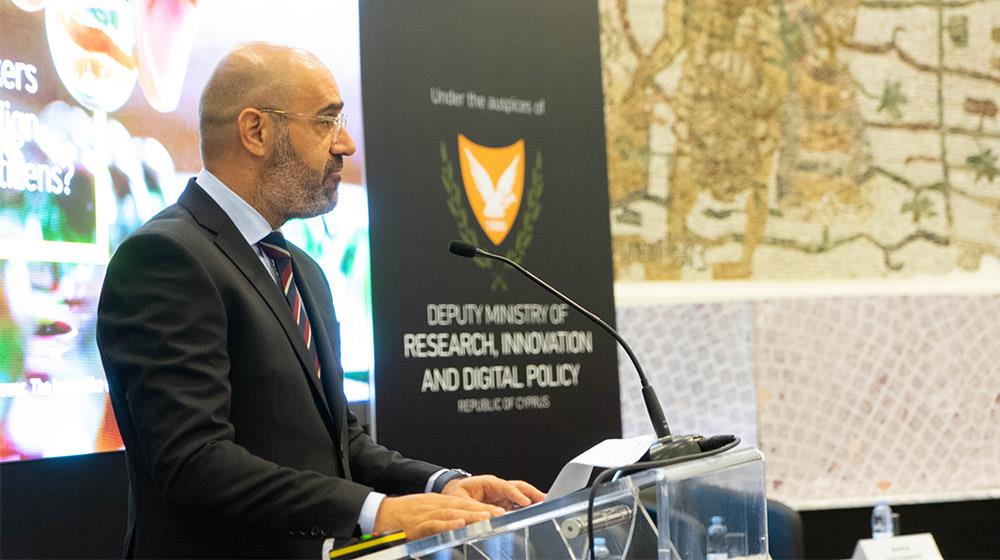Cyprus’ Deputy Minister of Research, Innovation and Digital Policy, Philippos Hadjizacharia has referred to efforts for shaping a modern digital State and an effective public administration, capable of adapting to the constantly changing international environment and contributing to the country’s development.
Addressing an event, organised in Nicosia by Ernst & Young Cyprus (EY), on 6 April, which was held under the auspices of the Deputy Ministry of Research, Innovation and Digital Policy, Deputy Minister to the President, Irene Piki, among others, took part in a discussion on various issues on the digital competences that need to be developed in the public service and the changes that need to take place for a successful digital transition.
In his address, Hadjizacharia, said that the modernisation of the State through the utilisation of human capital, which, as he noted, was inextricably linked to the success of any reform effort, was a matter of “vital” importance.
Their priority as a Deputy Ministry, he said, is not simply the acceleration of digital transformation, but the promotion of human-centered and sustainable digital policies that empower and serve citizens. “We are putting the country on a dynamic path of modernisation, keeping up with global trends and rapid technological developments, and laying a solid foundation for upgrading the quality of life, and the quality of service to citizens and businesses,” he said.
He noted that they are building secure and modern infrastructures, upgrading telecommunications, and offering citizens simple and easy-to-use services, “while investing in the digital capacity of our people but also of the entire Cypriot society and the labour market”.
The Deputy Minister noted that, the knowledge and training of civil servants in digital but also specialised matters, can be the driving force with which the “great change”, currently taking place at the level of public administration and beyond, can be collectively achieved.
For this purpose, he added, they have designed and are implementing, in collaboration with the Cyprus Academy of Public Administration, a comprehensive training programme which, he said, has been embraced by the entire public service.
Piki, said that there are very capable civil servants who want to do their job, but the procedures and technology in use, do not help them serve the purpose they want to serve, noting that, in the public service there are very outdated systems and procedures that do not allow staff to perform to the best of their ability.
She said that the establishment, by the previous Government, of the Deputy Ministry of Research, Innovation and Digital Policy, was a very big step, while also referring to the public service reform, the implementation of which, she said, will essentially start from the beginning of 2024.
Piki said that, it was a challenge for the new administration, to manage to properly combine the possibilities created by the establishment of the Deputy Ministry, technological upgrading, and training in digital skills and more, together with public administration reform and innovations that come with it. If this is achieved, she said, “we can greatly improve how the public service works, how to modernise it, how to better attract the new generation”, which, she said, is not interested in being employed in the public service. This is something to worry about, she added, because the civil servants population was getting older, noting that it was important to bring in new people with new skills.
On the subject of participatory democracy, Piki said that the aim of the President of the Republic is to listen to the people and the Council of Ministers to take into account people's opinion in decision-making, adding that intention is to create a platform where the public can submit their opinion.
As noted at the event, international studies by EY, show that the younger generation, specifically Generation Z (people born between 1997 and 2012), do not show much interest in being employed in the public service, while after the Covid-19 pandemic, several public servants are reassessing their priorities, due to the lack of work flexibility and because they are looking for a purpose, in order to work in public service. As a result, 30% say they are ready to leave their employment in the next 12 months. This percentage is 38% among Generation Z respondents.
(Source: CNA)









